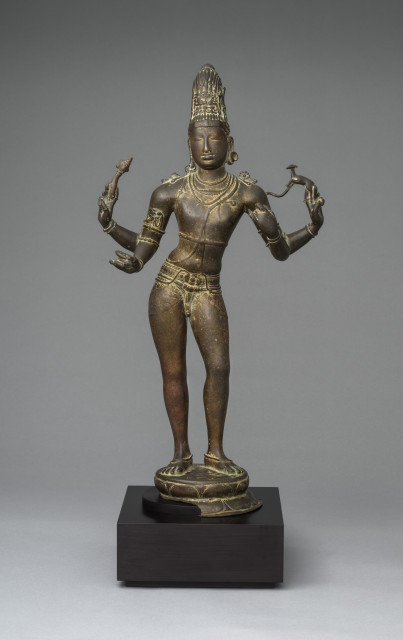Shiva as Vinadhara (Player of the Vina)

© Bruce M White 2024, Digital image © Asia Society
Shiva as Vinadhara (Player of the Vina)
early–mid 10th century
India, Tamil Nadu
Copper alloy
H. 27 3/4 x 17 5/8 x 6 1/2 inches
Asia Society, New York: Gift of Hope Aldrich, 2024.1
Provenance
Collection of Hope Aldrich, bequest of John D. Rockefeller 3rd, New York, in 1979.
The Asia Society, New York, NY, gift of Hope Aldrich, New York, 2024.
on view Licensing inquiries
This sculpture depicts the Hindu god Shiva as Player of the Vina and Lord of Music; the vina, a lute-like string instrument, would have been held by his front hands. His back hands hold his typical attributes, the short, heavy battle axe (parasu) and the leaping antelope (mriga). His crown of matted hair (jatamukuta) and jeweled ornament on his forehand include makara heads, while the left locks of hair contain the remnants of at least one cobra. The Chola rulers of south India (ca. 850–1287) patronized the casting of temple bronzes, in part because deities were visualized as assuming active public roles. Such sculptures were carried by priests and devotees during Hindu festivals.
